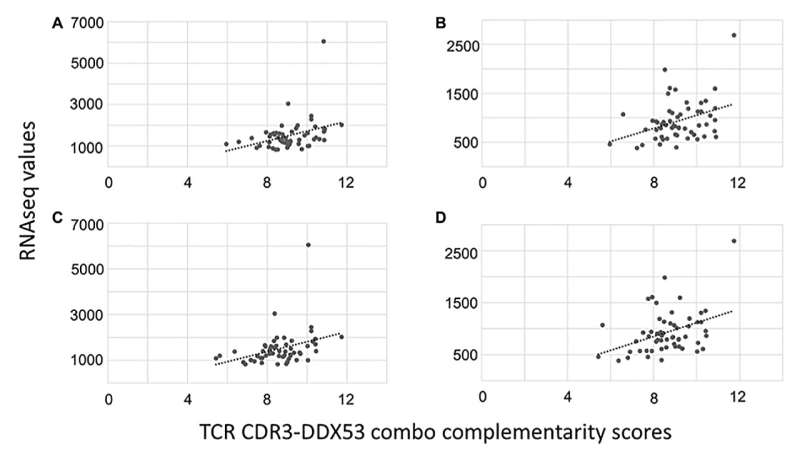This article has been reviewed according to Science X's editorial process and policies. Editors have highlighted the following attributes while ensuring the content's credibility:
fact-checked
proofread
A potential early esophageal cancer antigen: DDX53

A new research paper has been published in Oncoscience, titled "An immunoinformatics assessment of the cancer testis antigen, DDX53, as a potential early esophageal cancer antigen."
T-lymphocytes have been implicated in facilitating a pro-inflammatory, pro-tumorigenic microenvironment that worsens prognosis for esophageal carcinoma (ESCA).
In their new study, researchers Peter Cheng, Konrad J. Cios, Mallika Varkhedi, Vayda R. Barker, Michelle Yeagley, Andrea Chobrutskiy, Boris I. Chobrutskiy, and George Blanck from the University of South Florida, Oregon Health and Science University Hospital and H. Lee Moffitt Cancer Center and Research Institute identified tumor resident, T-cell receptor (TCR) complementarity determining region-3 (CDR3) amino acid sequences and employed an algorithm particularly suited to the big data setting to evaluate TCR CDR3-cancer testis antigen (CTA) chemical complementarities.
"To better understand the potential positive and negative impacts of T-cells in ESCA, we recovered TCR recombination reads from the TCGA-ESCA whole exome sequence (WXS) files, obtained the TCR CDR3 AA sequences, and assessed the chemical complementarity of those sequences with CTAs, as those antigens have been characterized by many approaches over decades as candidate cancer antigens," write the authors.
Chemical complementarity of the ESCA TCR CDR3s and the cancer testis antigen DDX53 represented a disease-free survival (DFS) distinction, whereby the upper 50th percentile complementarity group correlated with worse DFS. The high TCR CDR3-DDX53 complementarity group also represented a greater proportion of tumor samples lacking DDX53 expression.
These data and analyses raise the question of whether or not the TCR CDR3-DDX53 chemical complementarity assessment detected an ESCA immune response that selected for DDX53-negative cells.
"Overall, these data are consistent with the possibility that TCR-antigen interaction induces selective pressure that results in antigen loss, a process referred to as immuno-editing, and, eventually, tumor cell escape from an anti-tumor immune response. These data for ESCA are also consistent with similar data obtained for high CS, low survival in the ovarian cancer setting," write the researchers
More information: Peter Cheng et al, An immunoinformatics assessment of the cancer testis antigen, DDX53, as a potential early esophageal cancer antigen, Oncoscience (2023). DOI: 10.18632/oncoscience.590


















